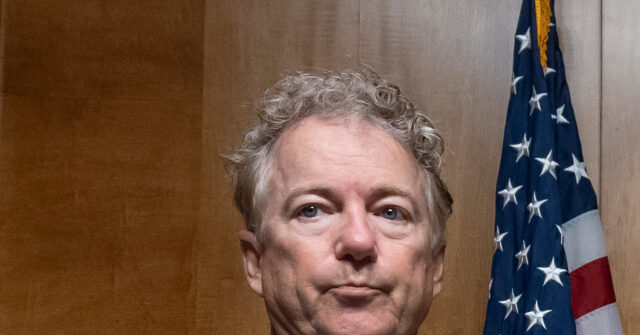In recent discussions regarding the government funding bill known for its excessive appropriations, Senator Rand Paul has described House Speaker Mike Johnson as a “weak, weak man.” The 1,547-page spending bill, released just days before a looming government shutdown, has been criticized for containing numerous controversial provisions, including a pay raise for members of Congress. This deal reflects what opponents are calling a lack of fiscal responsibility, as it includes over $100 billion in spending that has not been offset by any revenue increases. Paul has lamented that both Democrats and certain Republicans contribute to the nation’s escalating debt, foreshadowing potential economic instability and questioning the resolve of party leadership in making tough fiscal decisions.
The spending deal—often referred to as the “Cramnibus” due to its extensive content—was negotiated in a closed-door setting, leaving little room for input from various factions within the Republican party. The House Freedom Caucus expressed significant concern regarding the spending’s implications for national debt and fiscal policy. Their commentary emphasizes the belief that the absence of creditable budgetary accountability will perpetuate harmful financial practices, ultimately jeopardizing the nation’s economic standing. The sentiment is echoed by members across the political spectrum, underscoring an urgent need for transparency and responsible governance.
A pivotal element of the spending bill is the reinstatement of the automatic cost-of-living adjustments for congressional salaries, a provision that had been blocked since 2009. This automatic pay raise mechanism, explained by Representative Rosa DeLauro and others, means that members of Congress will see an increase in their compensation unless actively opposed. This documented salary increase comes at a time when many Americans are grappling with economic challenges, leading to further backlash against legislators perceived to prioritize their own financial well-being over public service responsibilities.
Moreover, the spending bill has brought to light the ongoing support for the State Department’s Global Engagement Center (GEC), which has seen a one-year extension in funding. Critics argue that the GEC promotes censorship, particularly targeting conservative media outlets. Opponents accuse the center of fostering an environment where free speech is compromised under the guise of combatting misinformation. This aspect of the funding deal has fueled concerns among Republican ranks, further emphasizing divisions regarding media freedom and the nature of government funding priorities.
The reception of Johnson’s handling of the negotiations is critical, especially following his ascent to the position of Speaker of the House. With many Republicans expressing dissatisfaction, Johnson’s leadership is under scrutiny as he gears up for further votes in 2025. The concerns raised by influential party members reveal a rift and indicate that the spending bill may have broader implications for the future direction of the Republican party, especially as they prepare for impending electoral contests.
Critics maintain that this spending bill marks a departure from the fiscal conservatism that some party members advocate for, potentially alienating core supporters. The debate surrounding the bill highlights fundamental issues of governance, transparency, and accountability among lawmakers. As the discussions evolve, the ramifications of these decisions will likely remain a contentious topic within political discourse, featuring prominently in future discussions regarding fiscal policies and party leadership accountability in Congress. Overall, these dynamics indicate a growing need for internal reassessment within the Republican party as it navigates the intricate landscape of American governance and public expectation.

